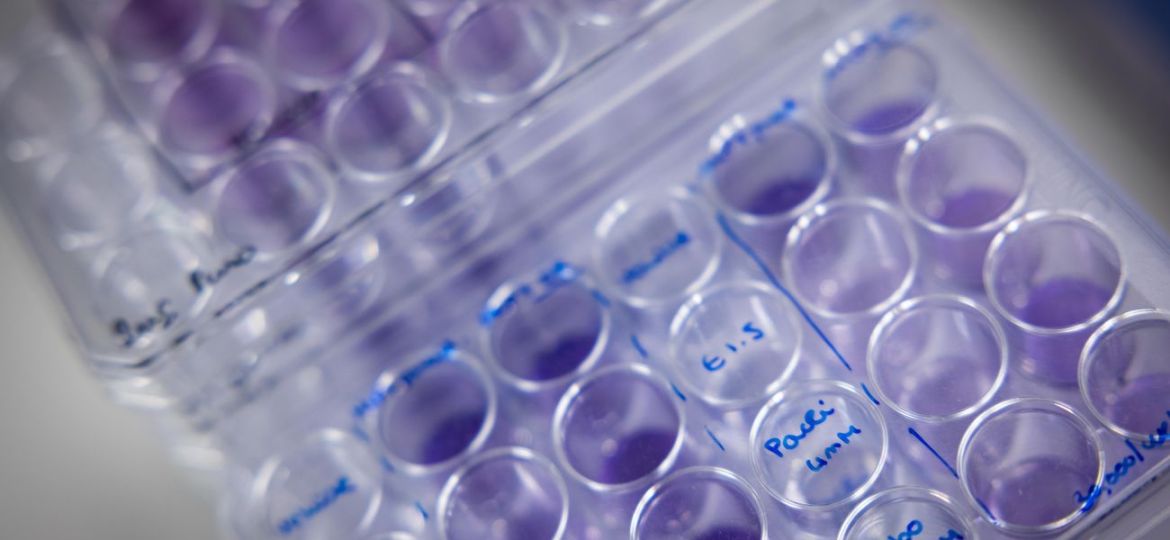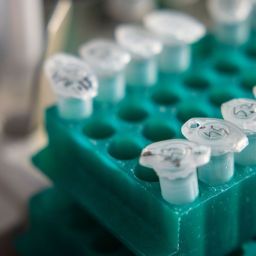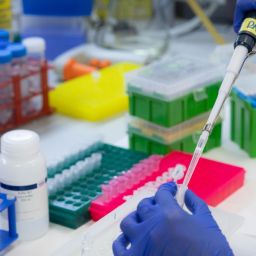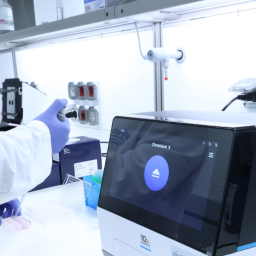
- Published in the journal Clinical Cancer Research (1), preliminary results of a two-part, phase I first-in-human study show encouraging antitumor activity and manageable toxicity of a novel, selective protein arginine methyltransferase 5 (PRMT5) inhibitor in patients with advanced solid tumors.
- Found overexpressed in several tumor types, PRMT5 plays a regulatory role in the proliferation, invasion, and migration of cancer cells and is therefore an attractive cancer drug target.
- Co-led in Spain by VHIO’s Irene Braña, this present study was designed to identify the maximum tolerated dose and a recommended phase II dose and evaluate the safety and preliminary efficacy of the PRMT5 inhibitor JNJ-64619178 in patients with advanced malignant solid tumors or B cell non-Hodgkin lymphomas (NHL) who previously received or were ineligible for standard treatment options.
Published in Clinical Cancer Research (1), a journal of the American Association for Cancer Research (AACR), preliminary results (part 1) of a two-part, first-in-human, open-label and multicenter study show that monotherapy with JNJ-64619178—a novel, selective inhibitor of protein arginine methyltransferase 5 (PRMT5)—demonstrated manageable dose-dependent toxicity and achieved preliminary antitumor activity in patients with advanced malignant solid tumors or B cell non-Hodgkin lymphomas (NHL) who previously received or were ineligible for standard treatment options.
“The protein arginine methyltransferase 5 is overexpressed in several human cancers and has been shown to have oncogenic properties via epigenetic mechanisms. PRMT5 promotes the proliferation, invasion and migration of cancer cells, and therefore represents a promising target in cancer drug discovery,” observes Irene Braña, Principal Investigator of the Vall d’Hebron Institute of Oncology’s (VHIO) Head and Neck Cancer Group, CORE Phase I Investigator of VHIO’s Research Unit for Molecular Therapy of Cancer (UITM) – Caixa Research, and lead investigator of this present study in Spain.
Recent studies (2),(3) have shown that inhibition of PRMT5 has antitumor activity in subsets of cancer cell lines and animal models across various tumor types. This study, directed by first author Manish R. Patel, Director of Drug Development, Florida Cancer Specialists/Sarah Cannon Research Institute (USA), was designed to identify the maximum tolerated dose and a recommended phase II dose for monotherapy with JNJ-64619178, as well as evaluate the safety and preliminary efficacy of this potential new second generation epigenetic therapy in adult patients with advanced malignant solid tumors or B cell non-Hodgkin lymphomas (NHL) who previously received or were ineligible for standard treatment options. .
“Based on our reported safety data and preliminary antitumor activity, especially in patients with ACC, we have identified the maximum tolerated dose and recommended phase II trial dose. To our knowledge, this is the first full report of a phase I study of a PRMT5 inhibitor, a target that has attracted extensive and ongoing clinical development,” says Maria Vieito, Clinical Investigator of Irene Braña’s Group and a CORE Phase I Investigator at VHIO’s UITM – Caixa Research, Medical Oncologist at the Vall d’Hebron University Hospital (HUVH), and corresponding author of this first-in-human phase I study.
A potential second generation epigenetic therapy
Conducted at sites including VHIO’s Research Unit for Molecular Therapy of Cancer (UITM) – Caixa Research headed by Elena Garralda, this study enrolled ninety patients with different advanced solid tumors who had received a median of three prior lines of systemic therapy, who were treated with JNJ-64619178 monotherapy. Developed by Janssen Research and Development, JNJ-64619178 is a potent, selective inhibitor of PRMT5, an enzyme that plays an important role in protein methylation and the development of various cancers.
The most common treatment emergent adverse events reported were haematologic and gastrointestinal that were more frequent and acute with dosage increase. Overall, JNJ-64619178 was well tolerated, with generally less toxicity compared with other cancer therapies targeting epigenetic mechanisms.
“Our data show preliminary antitumor activity, especially in patients with adenoid cystic carcinoma, which is a rare malignancy that most commonly develops in the salivary glands or other regions of the head and neck. These tumors are resistant to chemotherapy and developing effective, targeted treatments for this disease represents an unmet clinical need,” observes Vladimir Galvao, a Phase I Investigator at the UITM – Caixa Research and a co-author of this present study. Notably, in one patient with a rare form of pancreatic cancer who had not responded to prior therapies, JNJ-64619178 has achieved disease control since the initiation of this clinical trial four years ago.
“While preliminary results are encouraging, further development of this class of PRMT5 inhibitors as monotherapy for solid tumors will require the identification of robust biomarkers to select those patients who would most likely benefit from this type of epigenetic-based therapy. Additional preclinical studies may also identify promising combination strategies targeting PRMT5,” concludes Irene Braña, Medical Oncologist at HUVH, Vall d’Hebron Barcelona Hospital Campus.
###
References:
- Vieito M, Moreno V, Spreafico A, Brana I, Wang JS, Preis M, Hernandez T, Genta S, Hansen AR, Doger B, Galvao V, Lenox L, Brown RJ, Kalota A, Mehta J, Pastore F, Patel B, Mistry P, Gu J, Lauring J, and Patel MR. Phase 1 Study of JNJ-64619178, a Protein Arginine Methyltransferase 5 Inhibitor, in Advanced Solid Tumors. Clin. Cancer Res 2023. DOI: 10.1158/1078-0432.CCR-23-0092
- Chan-Penebre E, Kuplast KG, Majer CR, Boriack-Sjodin PA, Wigle TJ, Johnston LD, Rioux N, Munchhof MJ, Jin L, Jacques SL, West KA, Lingaraj T, Stickland K, Ribich SA, Raimondi A, Scott MP, Waters NJ, Pollock RM, Smith JJ, Barbash O, Pappalardi M, Ho TF, Nurse K, Oza KP, Gallagher KT, Kruger R, Moyer MP, Copeland RA, Chesworth R, Duncan KW. A selective inhibitor of PRMT5 with in vivo and in vitro potency in MCL models. Nat Chem Biol. 2015 Jun;11(6):432-7.
- Prabhu L, Wei H, Chen L, Demir Ö, Sandusky G, Sun E, Wang J, Mo J, Zeng L, Fishel M, Safa A, Amaro R, Korc M, Zhang ZY, Lu T. Adapting AlphaLISA high throughput screen to discover a novel small-molecule inhibitor targeting protein arginine methyltransferase 5 in pancreatic and colorectal cancers. Oncotarget. 2017 Jun 20;8(25):39963-39977.

























